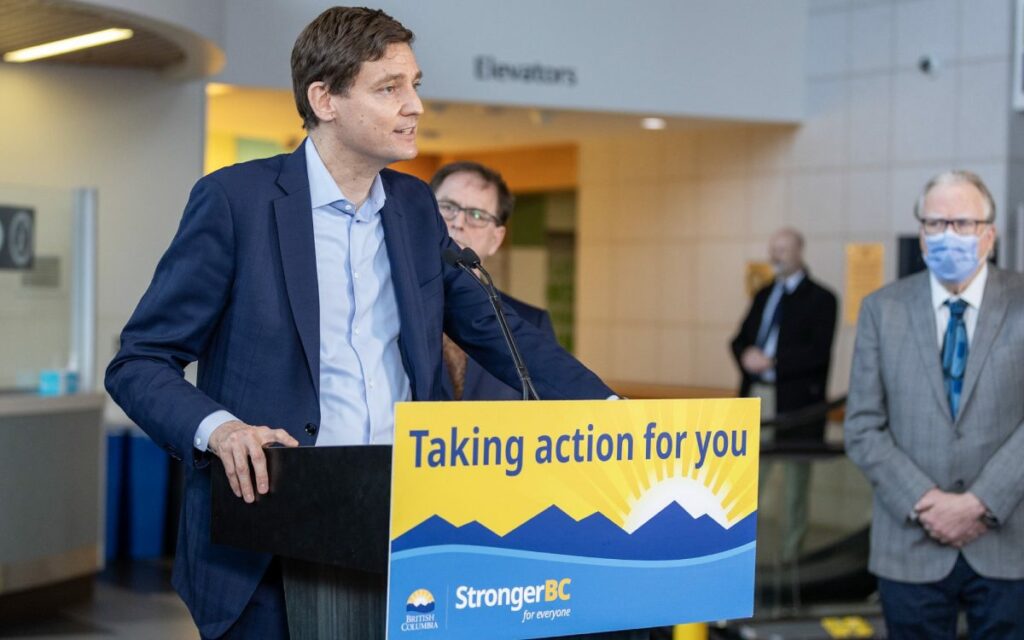
It’s time to turn the page on this failed public policy, in hopes that other jurisdictions learn from the mistakes made in BC. Pictured: Premier David Eby. Photo Credit: David Eby/X.
British Columbia’s drug decriminalization pilot project will go down in the history books, serving as a lesson for jurisdictions who are desperately seeking solutions to a ruthless drug crisis that has left thousands dead and put cities across the country in a chokehold.
The stakes are incredibly high. All three levels of government have been confronted by a choice: do nothing and let the problem become worse or try to break the mold and introduce policies to minimize the human and societal harms caused by drug abuse.
Premier David Eby chose the latter option. Last year, the provincial government launched a 3-year decriminalization pilot project and was granted an exemption from the federal Controlled Drugs and Substances Act that would allow for adults to possess small amounts of certain illegal drugs for personal use.
To evaluate whether the program was a success, extensive monitoring and evaluation would take place to determine whether the approach by the BC government reduced stigma and harms, while increasing access to health and social services for drug users.
If successful in its stated outcomes, there is no doubt the BC government would be met with praise for taking bold, decisive action to save lives. The pilot could then be adopted for use by other provinces dealing with public health emergencies.
But to fail, or move too quickly, could undermine the ability of governments to push the envelope on policies to curb drug use.
On paper, safe supply and decriminalization are tools that can save lives. Full stop.
But the practical application of the policy in a real-world setting is a much different reality and British Columbians are now left to suffer the unintended consequences of the decriminalization experiment come to life.
Last month, the Deputy Chief of the Vancouver Police testified before a House of Commons committee that 50 per cent of hydromorphone seized by police had been diverted from safe supply drugs. In layman’s terms, taxpayer funded drugs are ending up in the hands of dealers and being resold on the streets.
Meanwhile, hospital staff in BC were left with no choice but to blow the whistle on drug use in hospitals. Consumption of drugs was taking place in bathrooms and shared rooms, putting other patients and nurses at risk of exposure.
As for the statistics, the BC coroners service reported that in 2023, toxic drugs are the leading cause of death for people aged 10-59. Drug overdoses account for more deaths than homicides, suicides, accidents and natural disease combined.
Concerns with the decriminalization project have also been raised by local police forces, small businesses and opposition parties. For anyone following the conversation, it was clear that something had to give. And it finally did last week.
Eby has since asked for the federal government to amend the exemption order to recriminalize the use of drugs in public spaces, like hospitals and restaurants.
While federal minister Ya’ara Saks says it’s too early to draw conclusions about drug decriminalization, it seems obvious that this is a failed policy with many unintended consequences.
Two things can be true at the same time. The decriminalization pilot project was borne out of the desperate reality facing so many drug users, those who love them, and the community advocates that are hoping beyond hope for a solution. We can and should have compassion for our neighbors who are suffering.
But that doesn’t mean we can ignore the data or the many concerns that have been raised in BC. It’s time to turn the page on this failed public policy, in hopes that other jurisdictions learn from the mistakes made in BC.

Josie Sabatino is a Senior Consultant at Summa Strategies, focused on providing strategic insight and helping clients meet their objectives in an ever changing and complex political and regulatory environment. Prior to joining Summa, Josie spent nearly a decade in political communications and most recently served as the Director of Communications to the Hon. Erin O’Toole, former Leader of the Official Opposition.




















